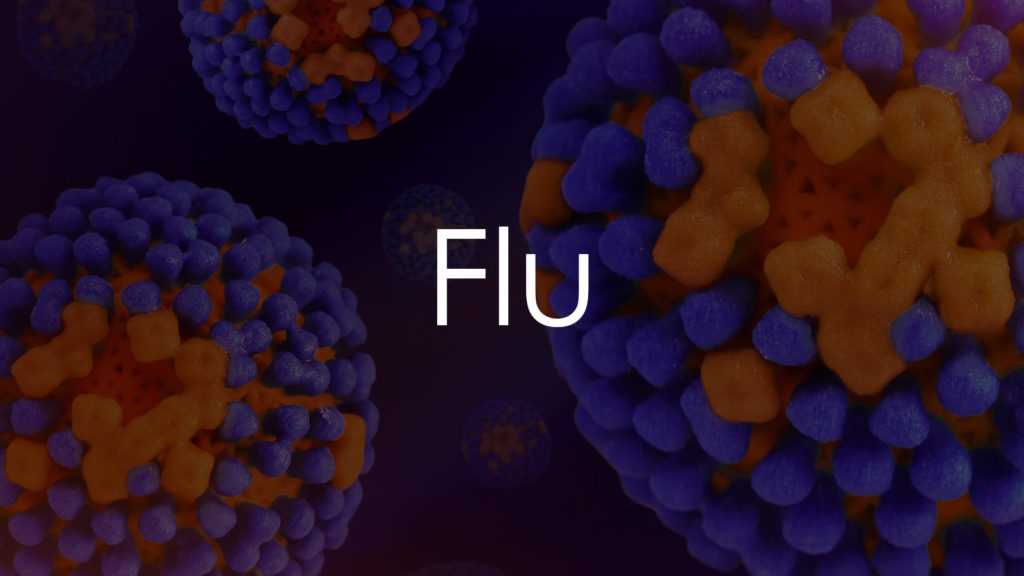Treatment of influenza, commonly known as the flu, involves a combination of medical interventions, home remedies, and preventive measures to alleviate symptoms and speed up recovery. This article explores the various approaches to effectively manage and treat influenza.

Medical treatments
Antiviral medications
Antiviral medications are often prescribed to reduce the severity and duration of influenza symptoms. These medications are most effective when taken within the first 48 hours of symptom onset. They work by inhibiting the replication of the influenza virus, helping the immune system to fight off the infection more efficiently.
Pain relievers
Pain relievers and fever reducers can help alleviate symptoms such as headaches, muscle aches, and fever. These medications are essential for improving comfort and overall well-being during the illness.
Decongestants and cough suppressants
Decongestants help to relieve nasal congestion, while cough suppressants can reduce the frequency and severity of coughing. These medications are particularly useful for managing respiratory symptoms and improving sleep quality.
Home remedies
Rest and hydration
Adequate rest is crucial for recovery from influenza. Resting helps the body to focus its energy on fighting the infection. Staying well-hydrated by drinking plenty of fluids, such as water, herbal teas, and broths, helps to thin mucus and prevent dehydration.
Warm saltwater gargles
Gargling with warm salt water can soothe a sore throat and reduce swelling. This simple remedy can be repeated several times a day to provide relief from throat discomfort.
Steam inhalation
Inhaling steam from a bowl of hot water or taking a hot shower can help to relieve nasal congestion and ease breathing. Adding essential oils like eucalyptus or menthol to the water can enhance the decongestant effects.
Dietary adjustments
Nutritious foods
Consuming a balanced diet rich in vitamins and minerals supports the immune system. Foods such as fruits, vegetables, lean proteins, and whole grains provide essential nutrients that aid in recovery.
Warm fluids
Warm fluids like chicken soup, herbal teas, and warm water with honey and lemon can soothe the throat and help to keep the body hydrated. These fluids also provide comfort and can reduce congestion.
Preventive measures
Vaccination
Annual influenza vaccination is one of the most effective ways to prevent the flu. The vaccine is designed to protect against the most common strains of the influenza virus each season. Vaccination not only reduces the risk of contracting the flu but also lessens the severity of symptoms if one does get infected.
Good hygiene practices
Practicing good hygiene is essential for preventing the spread of influenza. This includes frequent handwashing with soap and water, using hand sanitizers, covering the mouth and nose when coughing or sneezing, and avoiding close contact with infected individuals.
Healthy lifestyle
Maintaining a healthy lifestyle with regular exercise, adequate sleep, and a balanced diet strengthens the immune system. A robust immune system is better equipped to fight off infections, including influenza.
Professional medical care
When to see a doctor
It is important to seek medical attention if influenza symptoms worsen or if complications arise. This includes experiencing difficulty breathing, chest pain, persistent high fever, or confusion. Individuals with pre-existing health conditions, pregnant women, young children, and the elderly should be particularly vigilant and seek prompt medical care.
Hospitalization
In severe cases of influenza, hospitalization may be required. This is especially true for individuals who develop complications such as pneumonia or have underlying health conditions that exacerbate the illness. Hospital care can provide necessary treatments and close monitoring to ensure recovery.
Conclusion
Effective treatment of influenza involves a combination of medical interventions, home remedies, and preventive measures. Antiviral medications, pain relievers, decongestants, rest, hydration, and good hygiene practices are essential components of managing the flu. By understanding and implementing these strategies, individuals can alleviate symptoms, speed up recovery, and prevent the spread of influenza.